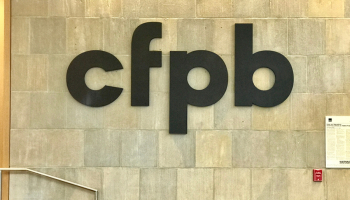Banks Hit Back at Credit Card Fee Changes
The ABA and ICBA have criticized plans to limit late fees on credit cards, which the CFPB believes will slash costs to consumers by $9 billion
- |
- Written by Banking Exchange staff

Proposals to drastically limit late fees on credit card payments will raise credit costs and reduce availability, banking industry groups have warned.
The Consumer Financial Protection Bureau (CFPB) announced last week that it planned to cap late fees at 25% of the required minimum payment.
The regulator also wants to slash the immunity provision dollar amount for late fees from its current upper limit of $41 to $8, cutting the perceived disparity between late fees and the cost of collection. Automatic annual inflation-linked increases to these fees will also be scrapped under the bureau’s proposals.
The CFPB announced its review of late fees and other penalties in June 2022, arguing that such policies cost customers a total of $12 billion a year. The bureau believes its changes would cut this by as much as $9 billion.
However, the American Bankers Association (ABA) has claimed that the changes would reduce competition and raise the cost of credit for consumers regardless of whether they pay on time or not.
Rob Nichols, president and CEO of the ABA, argued that the plans would “result in more late payments, higher debt and lower credit scores, and is inconsistent with the CARD Act’s encouragement of responsible credit management”.
Existing rules were “based on substantial research, stakeholder input and a careful rulemaking process”, Nichols added, ensuring that costs are covered while providing certainty and consistency to issuers and customers.
Rebeca Romero Rainey, president and CEO of the Independent Community Bankers of America (ICBA), urged the CFPB to ensure the new rules did not adversely affect smaller credit card issuers such as community banks.
Clearly disclosed late fee terms help to “deter late payments and… offset the significant costs to issuers”, she said. “Considering these costs, current practices are appropriate and do not constitute ‘junk fees’, despite the CFPB’s misrepresentation of the community bank business model.”
Rainey said community banks would “work closely” with the bureau to “mitigate the negative impact of this rulemaking on access to credit in local communities”.
“Americans value and appreciate the convenience and security they get from their credit cards, and they recognize there is a cost for that service,” the ABA’s Nichols stated. “[The CFPB’s] proposal ignores that reality. We will fight this proposal with facts, while continuing to challenge the bureau’s efforts to unfairly demonize an industry critical to the US economy.”
Tagged under Payments, Feature, Feature3, Cards, Fee Income,













